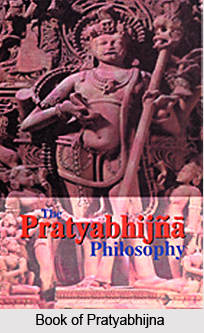 Kashmir Shaiva philosophy consists of four theories known as Pratyabhijna or realizing individual self as Universal Self; Kula or realizing the totality of universe; Krama or the successive realization of an individual and Spanda or recognizing that all existence depends on vibration. Pratyabhijna seems to have enjoyed maximum recognition even outside Kashmir.
Kashmir Shaiva philosophy consists of four theories known as Pratyabhijna or realizing individual self as Universal Self; Kula or realizing the totality of universe; Krama or the successive realization of an individual and Spanda or recognizing that all existence depends on vibration. Pratyabhijna seems to have enjoyed maximum recognition even outside Kashmir.
The universe of objects and subjects hold together as it has a single mindful source that preserves it in being. Diverse subjects and objects can coordinate only if they are aspects of a single universal field of experience. Universal consciousness causes objects of consciousness to appear in such a way as if they are distinct from the limited subjects of experience. The forms figuring in our awareness have the ideas as their objects projected by the universal consciousness. Enlightenment is the realisation that the subject that has selfishly considered as an individual who is identical with the universal energy, named Lord Shiva. The authentic identity is present as a constant background to all experience which needs to be recognised and reflected upon as the ultimate conscious principle manifesting itself as all limited subjects, acts and objects of experience. Casualty is exclusively a property of conscious agents capable of volition. Consciousness would not represent matter if matter were something totally different from it.
This article is a stub. You can enrich by adding more information to it. Send your Write Up to content@indianetzone.com












